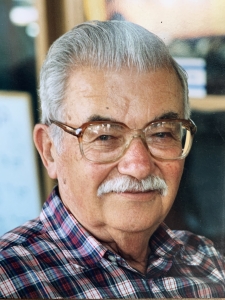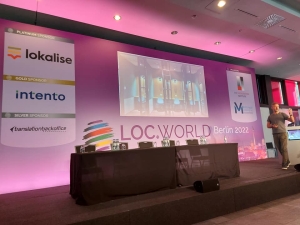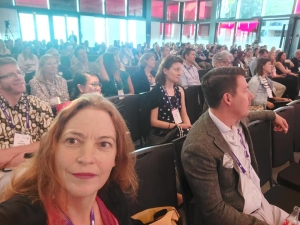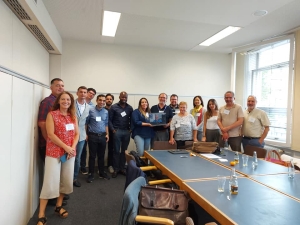Sharpening the Axe. Or How Not To Miss The Next Revolution.
“We’re so busy chopping trees, that we forget to sharpen the axe”
Someone smart.
Nachum – or Humi, as he was affectionately known – my husband Ronnie’s father, was a kind man, loved by everyone, myself included.
Humi had a small photoshop on King George Street in Tel Aviv, which had been there since the early 1960’s. Every day Humi would ride on his scooter to his small shop and sit there until the evening, selling cameras, taking passport photos, making xerox copies, but mostly sending out photos for development in the lab. I don’t know if you remember, but once upon a time, we used to have cameras with film which would be taken out of the camera and then sent to the lab to be developed into pictures. It all sounds a bit odd nowadays, but this was the reality back then. The 1980’s brought about a revolution in the photography field: The shops installed large, sophisticated machines, announcing that the pictures would be developed overnight. Seeing this, Humi shrugged… believing it to be just another whim of the young. Besides, where would he find the place for such a big machine in his small shop? He continued to send film to the lab and received printed photos after a few days. Soon, “picture development within 24 hours” had turned into “development within the hour”. Once again, Humi just shrugged. Well, what could be done…? The number of customers gradually dwindled, and once digital cameras without film hit the market, even this trickle of customers almost stopped, except for random customers looking to xerox documents, to have their passport picture taken, or even to find a cool antique camera for their collection. The shop remained empty, becoming a meeting point for old friends from the Palmach and the Haganah. (* The Palmach was the elite fighting force of the Haganah, the underground army of the Yishuv during the period of the British Mandate for Palestine.)
Dear Humi missed out on 3 major revolutions and still would not budge, but since he was growing old and had no desire to turn his small shop into a business empire, he was at peace with his decision and never expressed any regret. He peacefully passed away about a year ago.
A moving story, but what has it to do with us?
Simple: we are now in the midst of a significant revolution in the field of translation and we have no intention of just shrugging our shoulders and letting it pass over our heads without taking part in it.
I am, of course, referring to artificial intelligence – machine translation, which is gradually becoming a very significant tool in the field of written translation. “Okay, Google Translate, we know your stuff”, you must be snickering right now, thinking of all those ridiculous and funny texts on banners and the like, which had clearly been translated by Google and then sent to print without so much as a glance of a human eye. True, machine translation is by no means a novelty, and machines have been translating texts at one level or another for quite a while. Recent years have seen the advent of much more sophisticated and professional translation engines, and the outcome of their work no longer seems like a bad WhatsApp joke. These engines can provide a fast and efficient solution for translating texts in a wide range of areas, especially when timetables are short and the volume is large. Of course, a human eye is crucial to review and improve, I will elaborate on that shortly.
So, to learn a little bit more about the fascinating new world of machine translation, I attended LOCWORLD Berlin.
LOCWORLD is an international conference that brings together people from all over the world who are involved in the translation and localization industry. In addition to the networking and business opportunities it offers, the conference showcases new trends and technologies in the field.
This year, the main theme of the conference was machine translation and artificial intelligence, and I simply had to be there to board that fast train – on time. So, to begin with – Berlin.
Although I was very busy during the day, I was, fortunately, able to fit into my schedule the amazing performance by the band Coldplay, which cleverly managed to pass through town just as I was there.
The conference itself was simply fascinating, and beyond the interaction with interesting people from all over the world, which I absolutely love, I learned a lot about a field that is relatively new to me, and which, for me, constitutes an adventure that might take me and my business to amazing places.
Following is a short interview I had with Jay Marciano, who lectured at the machine translation workshop I attended.
And it’s not that I waited for this conference to start the adventure. Even before the conference, we started using professional translation engines and human editing.
I returned from Berlin full of motivation and determined to apply the new knowledge at Lichi Translations. I thought it would take time and we would face difficulties and challenges to integrate this move into our work plan. There are bound to be clients who will say “I don’t want Google to translate my texts!”, and that’s understandable.
However, since I have returned, the spirit of revolution has blown in Lichi in full force, and the number of projects that clients have chosen to be assisted by artificial intelligence has skyrocketed. To name just a few – a huge project of legal translation from Hebrew to Japanese, technical translation to English, translation from Hebrew into English of hospital procedures, and more.
Sorry, my dear Humi, I am not following your steps in this matter. Rest in peace, we are sharpening the axe and are moving forward!









Leave a Reply
Want to join the discussion?Feel free to contribute!